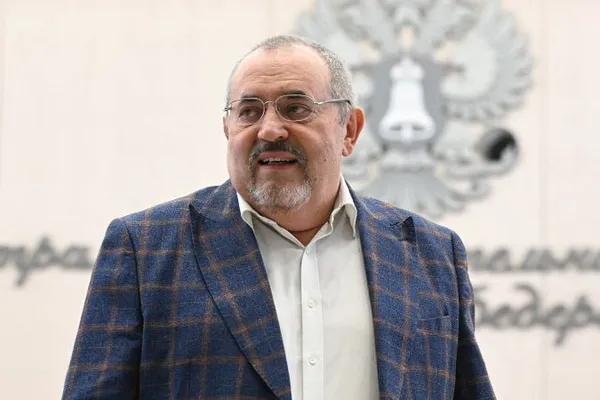Boris Nadezhdin, a prominent anti-war candidate in the upcoming Russian presidential election, found himself barred from the race after the Central Election Commission (CEC) invalidated the signatures collected in support of his candidacy. The decision by the CEC dealt a significant blow to Nadezhdin’s campaign, prompting him to announce his intention to challenge the ruling in Russia’s Supreme Court.
The CEC’s decision was based on allegations of irregularities in the signature collection process, with authorities claiming that some of the signatures submitted by Nadezhdin and his supporters were fraudulent or belonged to deceased individuals. Despite Nadezhdin’s assertion that the signature collection was conducted openly and honestly, the CEC stood by its decision, effectively disqualifying him from participating in the election.
In response to the ruling, Nadezhdin expressed his disagreement and determination to pursue legal recourse through the country’s highest judicial authority. He emphasized the significance of participating in the presidential election as a pivotal moment in his political career and vowed not to abandon his intentions despite the setback.
Nadezhdin’s candidacy had garnered attention due to his vocal opposition to Russia’s military intervention in Ukraine, which he characterized as a “fatal mistake.” Unlike many other candidates who refrained from openly criticizing the Kremlin’s actions, Nadezhdin took a bold stance against the war and advocated for a peaceful resolution through negotiations. His willingness to challenge the official narrative on the conflict earned him support from segments of the population disillusioned with the government’s policies.
However, Nadezhdin’s candidacy faced skepticism from observers who questioned the extent of his independence from the authorities. In Russia’s tightly controlled political system, candidates perceived as genuine threats to the incumbent president, Vladimir Putin, often encounter obstacles to their participation in elections. Despite Nadezhdin’s assertions of autonomy, some analysts speculated that his candidacy may have been tacitly endorsed by the Kremlin as a means of providing a semblance of competition while ultimately reinforcing Putin’s position.
The decision to disqualify Nadezhdin underscored the challenges faced by opposition figures in Russia’s electoral process. With Putin’s dominance in both political and media spheres, dissenting voices often struggle to gain traction and are subject to various forms of censorship and suppression. The case of Nadezhdin highlighted the limitations of political pluralism in Russia and raised concerns about the fairness and transparency of the electoral system.
While Nadezhdin’s chances of victory were considered slim, his exclusion from the race deprived voters of a potential alternative to Putin’s continued rule. In a political landscape dominated by the incumbent, the absence of viable opposition candidates further consolidated Putin’s grip on power and reinforced perceptions of an undemocratic electoral process.
In contrast to Nadezhdin’s predicament, Putin’s candidacy proceeded unhindered, buoyed by overwhelming popular support and a formidable campaign apparatus. As an independent candidate, Putin was required to gather a larger number of signatures to qualify for the election, a threshold he reportedly surpassed with ease. His campaign, bolstered by extensive state resources and media coverage, appeared poised for another landslide victory.
The controversy surrounding Nadezhdin’s disqualification added another layer of intrigue to an already highly anticipated election. With geopolitical tensions running high and Russia’s role in the Ukraine conflict under intense scrutiny, the outcome of the election was being closely watched both domestically and internationally. Nadezhdin’s exclusion raised questions about the integrity of the electoral process and the extent of political pluralism in Russia, casting a shadow over the legitimacy of the results.
In the aftermath of the CEC’s decision, Nadezhdin’s supporters rallied behind him, expressing solidarity and condemning what they perceived as a politically motivated move to silence dissent. The case highlighted the resilience of Russia’s opposition movement and its ongoing struggle for greater political freedoms and accountability.
As Nadezhdin prepared to take his case to the Supreme Court, the fate of his candidacy remained uncertain. While the odds of overturning the CEC’s decision were slim, the legal battle served as a symbolic gesture of resistance against the prevailing political order. Regardless of the outcome, Nadezhdin’s challenge to the status quo sent a powerful message about the importance of dissent and the enduring quest for democracy in Russia.













